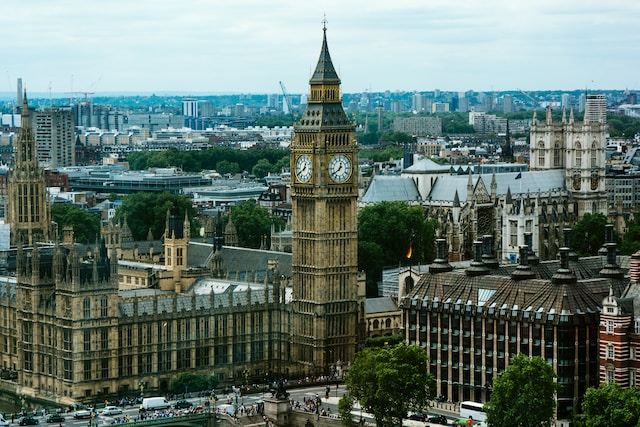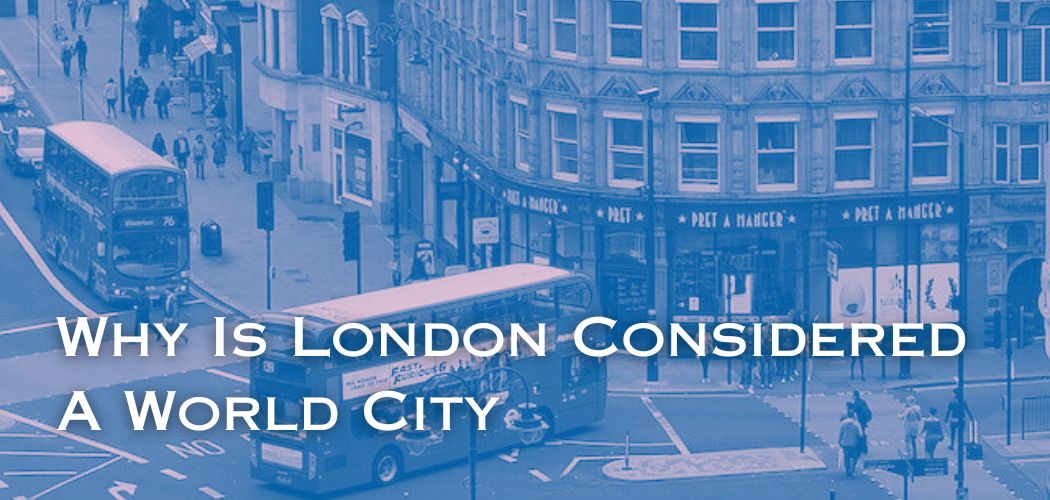London, the iconic capital city of the United Kingdom, has earned the prestigious status of being a world city. Boasting a captivating mix of history, culture, commerce, and innovation, it stands as a global metropolis of unparalleled influence.
But what attributes and factors have propelled London to attain this esteemed position on the world stage?
In this article, we delve into the questions surrounding the rise of London as a world city and explore the compelling reasons behind its international acclaim.
Contents
What Defines A World City, And How Does London Meet These Criteria?
A world city, also referred to as a global city, is a term used to describe major urban areas that play an important role in the global economic, cultural, and political environment.
These cities are distinguished by their international connectivity, diversified populations, and significant worldwide influence.
To understand why London is regarded as a world city, let’s explore the criteria that define such urban centers and how London meets these qualifications:
- Economic Significance:
World cities are major hubs for commerce, finance, and trade. They host significant financial institutions, stock exchanges, and multinational corporations.
London excels in this aspect, as it is one of the world’s leading financial centers. The City of London, known as the “Square Mile,” is a renowned financial district and home to institutions like the London Stock Exchange.
London’s financial prowess attracts businesses and investors from around the world, contributing to its status as a global economic powerhouse.
- Cultural Diversity:
A key feature of world cities is their ability to attract and embrace a diverse population from various countries and backgrounds.

London is a shining example of cultural diversity, with people from all over the world calling it home. This multicultural environment fosters an inclusive and vibrant atmosphere, enriching the city’s arts, cuisine, music, and cultural events.
The presence of numerous cultural institutions, museums, theaters, and galleries further enhances London’s reputation as a global cultural hub.
- Educational Excellence:
World cities often host prestigious educational institutions and research centers.
London is renowned for its universities, such as the University of Oxford, Imperial College London, and the London School of Economics.
These institutions attract students and researchers from across the globe, contributing to the city’s intellectual capital and research innovation.
- Global Connectivity:
World cities are major transportation hubs with extensive air, sea, and land connectivity.
London boasts multiple international airports, including Heathrow, one of the busiest airports worldwide.
Its well-developed public transportation system, including the iconic London Underground, facilitates seamless movement within the city and beyond. This connectivity strengthens London’s position as a global gateway and meeting point for business, travel, and diplomacy.
- Political Influence:
World cities often serve as centers of political power and play significant roles in international affairs.
As the capital of the United Kingdom, London houses important government institutions, including the Houses of Parliament and Downing Street, where the Prime Minister’s official residence is located.
Additionally, London hosts major diplomatic events and conferences, further solidifying its status as a global political hub.
- Global Media and Communication:
World cities are central hubs for global media and communication. London’s media sector is influential, hosting major news organizations and media conglomerates.
The city’s role as a media center enhances its international reach and influence, shaping public opinion and disseminating information worldwide.
What Are The Challenges And Opportunities For London As A World City?
As a world city, London enjoys numerous advantages, but it also faces a set of challenges that come with its global prominence.
To sustain its influential position and remain competitive on the world stage, London must navigate these challenges while capitalizing on the opportunities they present.
Let’s explore some of the key challenges and opportunities for London as a world city:
Challenges:
- Housing and Affordability:
London struggles with a shortage of affordable housing, which can lead to social inequality and force some residents to live far from the city center.

The rising cost of living presents challenges for attracting and retaining talent, including essential workers and professionals.
- Transportation and Congestion:
With its increasing population and high volume of commuters, London faces traffic congestion and pressure on public transportation. Ensuring efficient and sustainable transport systems is crucial for maintaining the city’s accessibility and reducing environmental impact.
- Environmental Sustainability:
As a major urban center, London faces environmental challenges, including air pollution, waste management, and energy consumption.
Implementing green initiatives and sustainable practices is essential for preserving the city’s environment and reducing its carbon footprint.
- Brexit and Economic Uncertainty:
The United Kingdom’s decision to leave the European Union (Brexit) has raised economic uncertainties. London’s financial sector may face challenges in terms of market access and talent retention, requiring innovative strategies to adapt to the changing economic landscape.
- Social Cohesion and Integration:
London’s diverse population can bring richness to the city, but it also presents challenges related to social cohesion and integration. Efforts to foster inclusivity and address social disparities are necessary to ensure a harmonious society.
Opportunities:
- Technology and Innovation:
London’s reputation as a hub for technology and innovation presents opportunities for fostering start-ups and research collaboration. Embracing emerging technologies can enhance various sectors, from finance to healthcare and urban planning.

- Cultural Exchanges:
London’s cultural diversity offers opportunities for promoting cross-cultural understanding and artistic collaborations. Cultural events, festivals, and exhibitions can serve as platforms for showcasing the city’s cosmopolitan identity.
- Education and Research:
London’s prestigious universities and research institutions offer opportunities for fostering knowledge exchange and attracting top talent from around the world. Strengthening educational partnerships can further elevate the city’s status as a global knowledge hub.
- Infrastructure Development:
Investing in infrastructure, such as transportation and communication networks, provides chances to improve London’s connectedness and position as a global gateway.
- Sustainable Development:
London can lead by example in tackling climate change and setting new norms for environmentally conscious urban development by implementing sustainable practices and green initiatives.
- Cultural and Creative Industries:
The creative industries of London, which include cinema, music, design, and fashion, provide attractive potential for economic growth and cultural exports.
- Global Trade and Finance:
London can continue to attract international businesses and investments by using its strategic location and financial competence, thereby expanding its position as a global financial center.

